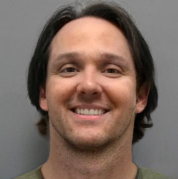|
Hi friends, Do you live with schizophrenia, have a close relationship with someone who does, or know a lot about it for some other reason? I'd be interested to hear from you. A close family member of mine recently had her first psychotic episode. She put her life in danger and was arrested and placed in psychiatric care for a week. She lived across the country but had to take an absence from her degree program two months from completion to return home to stay with family. She was initially resistant to the idea that she might have some kind of mental illness but it did not take her long to accept that she probably has schizophrenia. She is a very intelligent and capable person and she has a reasonably good support system in our family. We've hung out a few times since she's been home and talked at length about what happened and how she has been managing since then. I had heard about some of her behaviours during the episode second-hand from other family members, and what I heard was very worrying. The first couple times I spoke to her myself, I was surprised because she seemed very much herself, and I didn't see much of the behaviour that family members had described to me. She seemed stressed out and a bit withdrawn but was entirely coherent as far as I could tell, and aside from getting a little distracted here and there, she did not seem dangerously unwell. She has since been to some drop-in counselling, which she described as a positive experience for her, and the more time we spend together the more she has opened up to me. I had suspected, having heard about what she did to endanger herself, that she might have schizophrenia, especially after talking to a couple friends who live with "serious" mental illness and have had psychotic episodes themselves. The last time we hung out, she made a couple jokes about being "crazy" and then eventually said that she is relatively confident she has schizophrenia. She had first told me and my sister that she was experiencing a lot of distracting, anxious thoughts, namely self-deprecating thoughts and an obsession with not wanting to unfairly judge others, to think "objectively" about other people and not assume anything bad about them. She said that she had never had this problem before the episode but now was finding it challenging not to think negatively about others. Eventually she elaborated on this and admitted that she was having paranoid thoughts about other people's character and intentions. She is a very gentle, non-judgmental and open person by nature, so I think her desire not to unfairly judge another person's intention is her way of calming the paranoid thoughts. She also confided that she has become very distracted with naming and categorizing things - that is, she may walk into a room, look around, and begin internally naming all of the objects in a room (this is a fireplace, this is a table, this is a glass, so on and so forth). I think this may also be another form of self-preservation, in which she is distracting herself from the anxiety and the constant internal dialogue by focusing on neutrally categorizing things in her immediate environment. I don't think that she remembers the worst of the psychotic episode, because when I mentioned to her that I was worried about some of the behaviours my sister had seen, she did not remember doing those things. Since then, she has told me that she has hallucinated smells that she knows were not there, and has at least once been convinced that someone could read her thoughts. She has described her daily thought process as a constant barrage of imagery and dialogue that is distracting her to exhaustion. She is working very hard to cope with it and I think she is doing an amazing job, but she has made it clear that it is constant and completely mentally exhausting for her. She cries a lot and can be very distracted - it's not that she can't hold a conversation if she has something to keep her focus, but being anywhere noisy (for example a restaurant with music and other people sitting nearby and talking) can make things very difficult for her. She doesn't like to watch tv (although we did watch a movie yesterday as well and she really enjoyed it) and may need to turn off the radio abruptly, I think people talking especially, rather than music, can really exacerbate what is going on in her mind. I feel like she has already gone above and beyond in accepting her illness and in developing coping strategies, but I am afraid of her being caught off guard and not knowing what to do, or getting confused and doing something dangerous again. Right now she is with family and doesn't have a lot of immediate stress, but even though she has not yet finished her program she has already been offered a full-time teaching position at a private elementary school across the country, and I am scared about her being on her own again. I think a big part of her being able to accept this very quickly is that she desperately wants to be independent (she has said this herself) and she just wants to do whatever it is she needs to do to have that. I am completely confident in her ability to teach, but I need to know how I can help her in the long term. I know she's going to keep trying to take on a lot, as she always has, and I think we have to be realistic and accept and understand that returning to independence also means returning to stress, and if she is at emotional and mental maximum right now just trying to go through everyday life, adding travel, finding an apartment, a new job, living alone, etc., to all of this is very likely to be impossible. This is a lot of backstory, but basically I just want to hear from other people who live with schizophrenia or are knowledgeable about it for other reasons. I want to learn as much as I can and help her as much as I can.
|
|
|
|

|
| # ? May 4, 2024 21:10 |
|
If you'd like to do some classics reading, this is a thing from 2008-10 that was so good I've had it bookmarked forever (TEN YEARS?!?) that over the years grew into the general schizophrenia thread- Ask me about being schizophrenic. http://forums.somethingawful.com/showthread.php?threadid=2818136 This is Prester Jane's current thread on the subject Ask me about being a schizophrenic teenager in a doomsday Otherkin cult. https://forums.somethingawful.com/showthread.php?threadid=3846439
|
|
|
|
Scudworth posted:If you'd like to do some classics reading, this is a thing from 2008-10 that was so good I've had it bookmarked forever (TEN YEARS?!?) that over the years grew into the general schizophrenia thread- Thanks for the links, the first one looks like it could be helpful. I don't think Prester Jane's thread is going to be of much use to me, as it is dealing with a very specific and extreme set of circumstances. My sister isn't in a cult and she doesn't think she has special powers. She just has schizophrenia.
|
|
|
|
Edit: Nevermind, new diagnosis came in. Not schizophrenic.
SlightlyMad fucked around with this message at 16:45 on Oct 24, 2018 |
|
|
|
This is a good documentary about John Nash, the guy ďA Beautiful MindĒ is based on. He has some interesting comments on mental illness. https://youtu.be/96Yb-w7427U
|
|
|
|
I don't have personal experience but I find sometimes that if something is a little close to home, it helps to try to engage it in a more dry way. This lecture is pretty good as it happens. https://youtu.be/nEnklxGAmak
|
|
|
|
Thanks for the link, I'm watching it now. I found the first 20 minutes or so on genetics and language acquisition super interesting as well. I'm just getting to the bit on schizophrenia now, I am already a bit unsure because one of the first things he declared is that schizophrenia is a disease in which you can discern that something is very wrong with the ill person after talking to them for "a few sentences". In a psychotic episode, sure...but schizophrenic people don't just wander around babbling nonsense all the time. I'll keep watching, anyway, it could have just been poorly stated and my back is up because I'm concerned for my sister's well-being.
|
|
|
|
Yeah, continuing to watch, I wish he would clarify at the beginning that he is not talking about all schizophrenic people all the time. He is making a lot of really broad statements about how people with schizophrenia think that imply that schizophrenic people never have any grasp of sequential thought or logical reasoning, they are just confused constantly and therefore appear and behave erratically at all times. This is completely untrue. e: I ended up turning it off. I'm an academic and I don't like listening to a professor make massive generalizations, especially knowing that this is a very influential person who is reaching a lot of people. It just doesn't make sense to me, how it could possibly be useful to students to paint everyone with the same brush and make sweeping statements like "schizophrenics don't understand metaphors." That's just nonsense. You're talking about someone in a very extreme state of confusion at a given time, during an episode, or someone who is severely ill, or unmedicated/going without treatment. It is not innocuous or excusable to speak this way, it is deeply harmful. This man is a leading scholar and he should know that better than anyone. The Doctor fucked around with this message at 19:36 on Aug 12, 2018 |
|
|
|
I would be wary of moving across the country with schizophrenia, the people with schizophrenia that I've encountered tend to bounce around from place to place and become wandering homeless basically. Can't this person have Independence without moving across the country? Is there a support network in place where they are going?
|
|
|
|
The Doctor posted:Yeah, continuing to watch, I wish he would clarify at the beginning that he is not talking about all schizophrenic people all the time. He is making a lot of really broad statements about how people with schizophrenia think that imply that schizophrenic people never have any grasp of sequential thought or logical reasoning, they are just confused constantly and therefore appear and behave erratically at all times. This is completely untrue. My bad. I must admit I was not glued to the screen the whole time so I clearly missed some things. The bit about metaphors is inexcusable. I'm glad you enjoyed the first part though.
|
|
|
|
(Not trying to pile on, itís totally reasonable to expect that a stanford profs video with 1M views would be legit) I do research related to some of the cognitive deficits involved in schizophrenia and have some familiarity with it, and I would discount basically everything in that video not about neurotransmitters. Itís just not accurate or useful as a description of schizophrenia as a mental illness or of how it manifests in most people. Itís not true that you can recognize most schizophrenics immediately, that most are homeless (more like 5-10%), that they all have the same symptoms, that their symptoms are always that extreme, etc etc. Itís also pretty horrifying to me that he would use a really sad anecdote about someone with a mental illness as a laugh line in an undergrad class- academics I know wouldnít even use the term schizophrenic because it defines ppl by their disease, youíd always say people with schizophrenia. Many people with schizophrenia actually do recover and live normal lives, though itís hard to say how many (Iíve seen anywhere from 25-50%). Research on what determines this is very shaky afaik, but some evidence might suggest that being female, higher IQ, having a good family support system, and having it onset suddenly instead of gradually all make recovery more likely. Ofc treatment on top of that as well. Symptoms are also incredibly diverse, and there isnít necessarily overlap between any two given people w schizophrenia. Usually they are classed as either 1) positive symptoms (eg false beliefs, paranoia), 2) negative symptoms (eg low affect, mood), and 3) cognitive deficits (eg poor working memory or executive control). I am defs not an expert tho and definitely am not qualified to give advice about how to deal with it etc, I just have the anecdotal experience of friends w schizophrenia. When you say drop in counseling, does she have a set psychiatrist who has diagnosed her with schizophrenia and given her a treatment plan? Medication and having a consistent psychiatrist/therapist helped my friends a lot, I think itís super important. Having a family/friend support structure also helped them to deal with stress/check up on them/help them adhere to their medication regime. I would be pretty worried about one of them going far away solo to a place with a lot of new stresses shortly after a psychotic break. Theyíre extremely high functioning and successful by any measure at this point, but they did have to take it easy for awhile right after as they figured out how to get a handle on what was going on.
|
|
|
|
a_good_username posted:(Not trying to pile on, itís totally reasonable to expect that a stanford profs video with 1M views would be legit) Thank you for all this, I appreciate it a lot. Yeah, I did not get a good feeling about that video at all, it's amazing to me that he teaches at Stanford but I guess it shouldn't be. She is doing a lot better now from what I can tell. She has improved a lot since the first episode and from the first few times I hung out with her and the last time I saw her before she left. The last time we hung out she seemed considerably less distracted and much less emotionally distraught, if I didn't already know what had happened I would never have guessed there was anything wrong. She has already flown back across the country to accept the job she was offered, she starts teaching in September. I was absolutely terrified at her leaving and had some long conversations with my other sister about it, neither one of us wanted her to go and tried to explain to her how badly it could go once she was on her own and saddled with all of these new responsibilities, regardless of how much better she feels in the current moment. All that being said, she is an adult woman and neither of us had the power to stop her from going, which is what she decided to do. I would never try to compel her to do anything, as this would be inappropriate and I think damaging to our relationship and my ability to help her by breaking her trust and making her feel patronized. So, I simply explained my reasoning to her and let her make her own decision. The one great relief to me is that I happen to have a friend who lives in the city where she is who is completely financially independent, extremely cool, and has also had experience with lifelong mental illness. I got in touch with her and she was very happy to let my sister stay with her for at least a month so she doesn't have to move back in with that creep who was living like a two hour commute out of the city in his shithole apartment. I can't express what a relief this is. In all, things are still very much up in the air, there's no knowing what will happen in the future, especially when she starts teaching, but she did say that her employer is a personal friend and they and the institution are aware of her illness, so this is also a huge relief. She has people she can rely on and she no longer has to commute 2 hours twice a day to get to work, and doesn't have to live in a dump.
|
|
|
|

|
| # ? May 4, 2024 21:10 |
|
All of those things definitely seem like they alleviate at least some concerns, and also probably good itís not back to the situation she was in when she had the break. I feel the same re: not compelling people to do something. I figured that if theyíre not an immediate danger to themselves then staying in a position where they feel comfortable confiding/updating you is going to be most helpful in the long term since at least youíll know whatís going on. I know some ppl find it helpful when family members have a mental illness to talk to a psychiatrist or psychologist about it just to get an idea of what the diagnosis really means/help deal w a bit of the uncertainty. Not like, patient details obvi, but just to get a better idea of how they recommend supporting ppl etc.
|
|
|












